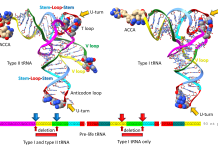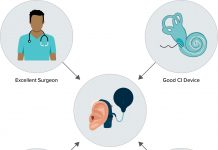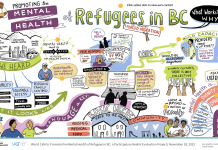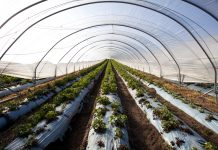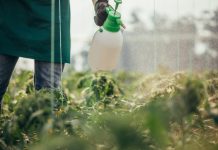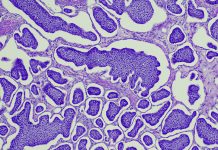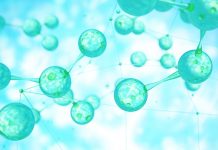Open Access Government produces compelling and informative news, publications, eBooks, and academic research articles for the public and private sector looking at health, diseases & conditions, workplace, research & innovation, digital transformation, government policy, environment, agriculture, energy, transport and more.
Home 2024
Archives
Transfer RNA as a written molecular history of the life transition on earth
Zachary Burton, Ph.D., Professor Emeritus, Department of Biochemistry and Molecular Biology, Michigan State University, reports on tRNA (transfer RNA) as a written molecular history of the pre-life to life transition on Earth ~4 billion years ago.
Seabirds and humpback whales give early warning to marine heatwaves
Lauren Bien from Prince William Sound Science Center and Mayumi Arimitsu from USGS, Alaska Science Center and additional contributors, John Moran and Rob Suryan, Alaska Fisheries Science Center explain how seabirds and humpback whales provide early warning signals during extreme marine heatwaves.
STEM programs: Encouraging an early start with engineering design
Nancy Butler Songer, Associate Provost of STEM Education at the University of Utah, highlights the importance of introducing STEM programs to younger students.
Tuneable phononic crystals and topological acoustics
Sourav Banerjee, Professor from the University of South Carolina, navigates the field of tuneable phononic crystals and topological acoustics.
Hearing and auditory research for cochlear implant outcomes
Amit Walia, Matthew Shew, and Craig A Buchman from Washington University School of Medicine, guide us through hearing and auditory research predictive models for cochlear implant outcomes in adults.
Building a sustainable, high-impact, and ‘living’ biobank infrastructure in Canada
A living biobank can generate new insights about our care; Francois Lamontagne, Paul Hebert, and Michelle Kho tell us more.
The opioid crisis in canada – Governmental responses and strategies
Norm Buckley, Scientific Director at the Michael G. DeGroote Institute for Pain Research & Care, and Jason Busse, Director of the Michael G DeGroote National Pain Centre at McMaster University, discuss the complexities of chronic pain management and addressing the opioid crisis.
Upscaling integrated mental health services and systems for people of forced migration
How can realist impact evaluation be used to upscale the integration of mental health programs for people of forced migration? Nancy Clark, an Associate Professor from the University of Victoria, investigates.
A transdisciplinary approach to literacy research, practice, and policy
Patriann Smith, Associate Professor at the University of South Florida’s Department of Teaching and Learning, discusses transdisciplinarity and how it could inform approaches to literacy research, practice, and policy.
The pet primate trade in the U.S.
Dr Melissa Seaboch, Professor and Department Chair at Salt Lake Community College, discusses the challenges regarding the pet primate trade in the U.S., including its impact on animal welfare and owners and the complexity of regulations.
Environmental health implications of plastic use in agriculture
Donald A. Bruun and Pamela J. Lein from the University of California, Davis in the U.S., highlight the environmental health implications of plastic use in agriculture.
Purple bacteria and their less known applications
Jungwoo Lee, High-School Student, and Arpita Bose, Associate Professor at Washington University in St. Louis, guide us through purple bacteria and their less-known applications, including wastewater treatment and biofertilization.
Are nanotextures enough to kill cancer cells?
Nanotextures on nanoparticles and implants to kill cancer cells in a more targeted manner may just be the key to tackling resistance to traditional cancer drugs.
Independent research experiences in sustainable chemistry
The Research Experiences for Undergraduates (REU) programme in the Department of Chemistry at Michigan State University was created to inform students majoring in chemistry, biochemistry and chemical engineering about key societal sustainability challenges and to provide graduate-level independent research experiences that address aspects of these challenges.
Permafrost grown: The heterogeneity of permafrost conditions
Melissa Ward Jones, from the University of Alaska Fairbanks, explains the heterogeneity of permafrost conditions and how it can impact agriculture.
Structural biology research and the origins of genetic coding
Charles W. Carter, Jr, Department of Biochemistry and Biophysics, University of North Carolina Chapel Hill, reviews the ways that recent research in Structural Biology, Biochemistry, Molecular Biology, and Phylogenetics have opened the origins of genetic coding to experimental study and their important implications.
Religion and accountability for restorative offender rehabilitation
Offender rehabilitation has different meanings for different people because we may have varying expectations about what rehabilitation actually looks like. Sung Joon Jang and Byron R. Johnson walk us through the role of religion and accountability in restorative rehabilitation.
Time to strengthen and enforce the north american migratory bird treaty act
The number of migratory bird populations is declining; Keith Hobson, professor and research scientist at Environment and Climate Change Canada and Western University, outlines the importance of updating conventions to protect these vulnerable species.
Development of novel therapies for pediatric cancer: Successes and challenges
Peter J. Houghton from Greehey Children’s Cancer Research Institute and Mary-Ann Bjornsti from the University of Alabama discuss some of the key challenges in the development of therapies for pediatric cancer care.
Tackling physical inactivity and a sedentary lifestyle: Two distinct approaches
Being physically inactive and sedentary are two distinct issues that affect older adults. However, each problem necessitates a unique set of solutions; Professor Isabelle J. Dionne from the Université de Sherbrooke tells us more.

